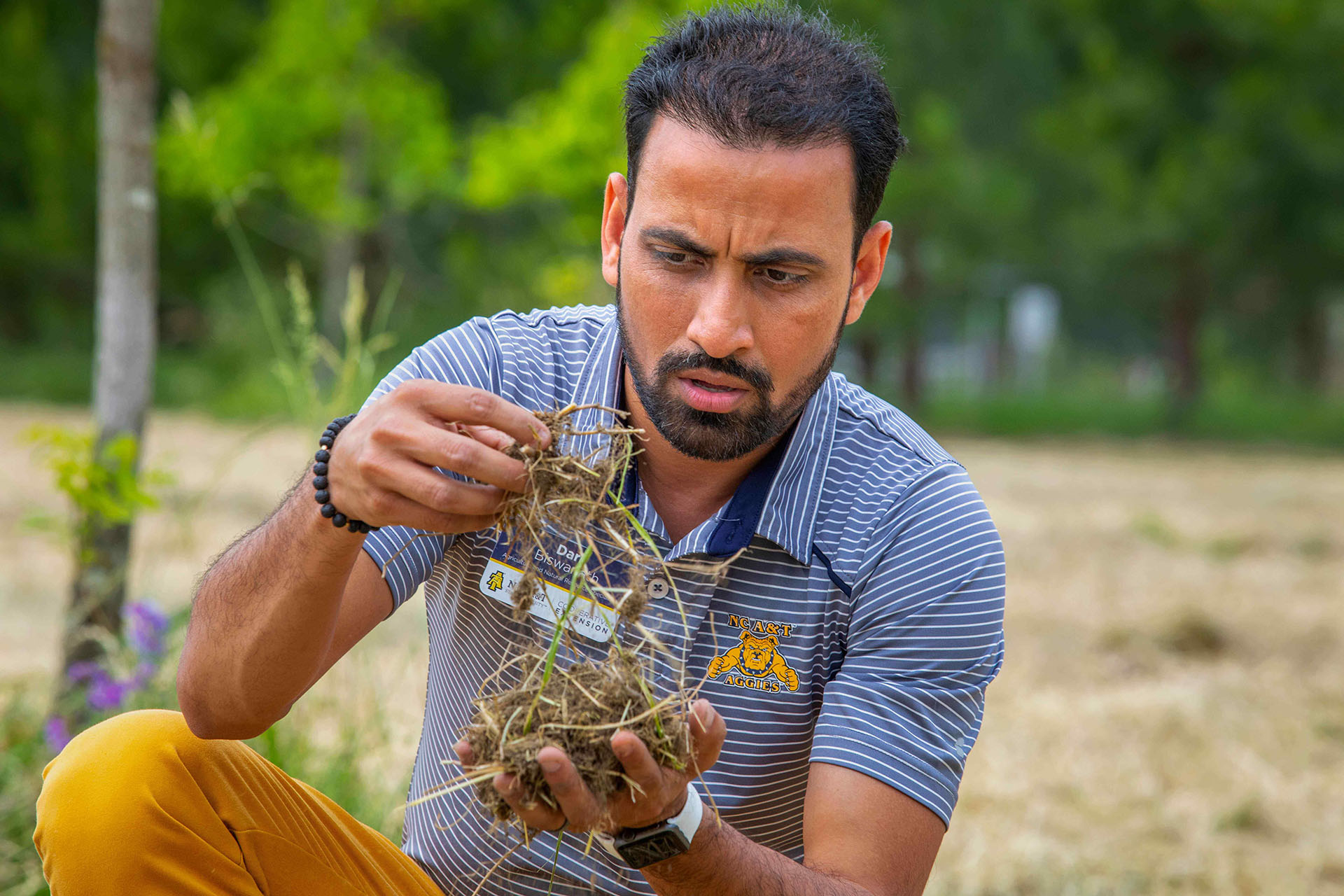EAST GREENSBORO, N.C. (Oct. 17, 2024) — Faculty members at North Carolina Agricultural and Technical State University and North Carolina State University will use a $1 million federal grant to investigate a promising new method to improve soil health and organic crop yields and mitigate the effects of climate change.
Biswanath Dari, Ph.D., an assistant professor and natural resource specialist with Cooperative Extension at North Carolina A&T, will head up A&T’s involvement in this three-year effort. N.C. State will lead the project, which is supported by a $121 million U.S. Department of Agriculture investment into research, Extension and outreach programs designed to address critical challenges faced by organic and specialty crop growers. It is funded by the USDA National Institute of Food and Agriculture Organic Transitions Program.
“Climate change is happening, as shown by recent extreme flooding and record high global temperatures,” Dari said. “With this project, we are trying to determine if weathered rock — a nascent climate-smart fertilizer source — can give farmers an organic alternative to fertilizer, improve crop productivity, protect the environment by sequestering more carbon and reduce agricultural emissions in high-disturbance organic systems in the Southeast.”
Faculty members at the two universities will investigate enhanced rock weathering, one of the most promising approaches to storing carbon in soil. When crushed silicate minerals created by the enhanced rock weathering process are added to soil, they can raise soil pH levels, add nutrients and pull significant amounts of carbon dioxide from the air. Researchers will study how this process affects soil fertility, organic crop yields, the carbon cycle, greenhouse gas mitigation and overall ecosystem balance. Enhanced rock weathering is increasingly used by organic farmers as a substitute for agricultural lime, but there has been little research done on its effects on organic systems in the United States.
Dari will conduct research on organic vegetables at two small-scale demonstration sites: at the N.C. A&T University Farm, and at the Small Farm Unit of the Center for Environmental Farming Systems (CEFS) in Goldsboro, a partnership between N.C. A&T, N.C. State and the N.C. Department of Agriculture and Consumer Services. Dari also will conduct Field Days and other extension activities to educate small-scale, limited-resource organic farmers about the potential benefits of enhanced rock weathering. N.C. State faculty members will focus on larger-scale row crops at CEFS and other N.C. State farm sites.
The project is led by principal investigator Alexander Woodley, Ph.D., an associate professor at N.C. State affiliated with the N.C. Plant Sciences Initiative. Along with Dari, the other co-principal investigators, all from N.C. State, are Luciano Gatiboni, Ph.D., an extension specialist and professor of soil fertility and nutrient management; David Suchoff, Ph.D., an assistant professor and alternative crops extension specialist; and William Joe Sauges, Ph.D., an assistant professor of biological and agricultural engineering.
“North Carolina A&T is pleased to partner on this important collaboration between North Carolina’s two land-grant universities,” said Shirley Hymon-Parker, Ph.D., interim dean of the College of Agriculture and Environmental Sciences. “By working together, researchers at both institutions are better positioned to find solutions that can provide significant support to organic farmers throughout the southeastern United States.”


